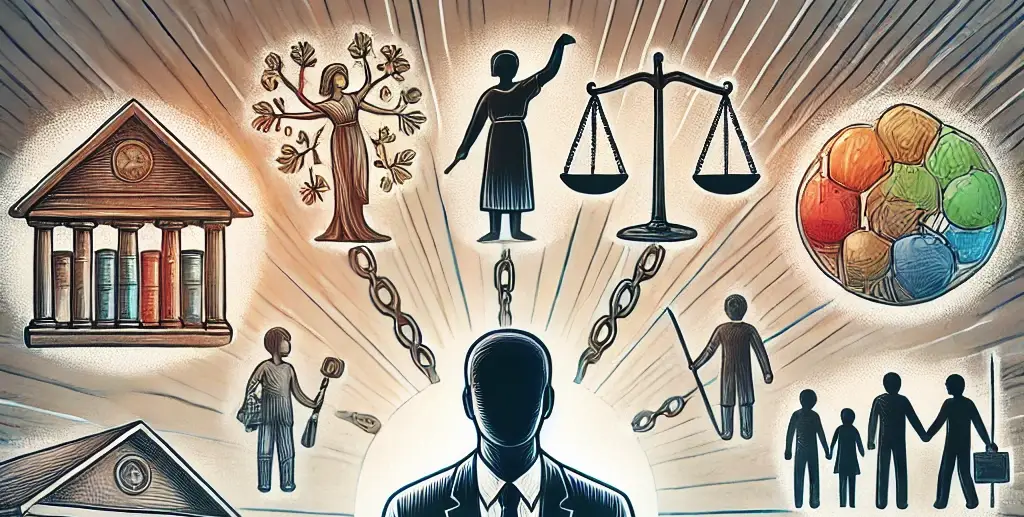Table of Contents
- Understanding Class Conflict
- The Process of Institutionalizing Class Conflict
- The Effects of Institutionalized Class Conflict
- Power Dynamics and Institutionalization
- Criticisms of Institutionalization
- Conclusion
Class conflict is one of the central themes in sociological theory, representing the tensions and struggles that arise from disparities in wealth, power, and privilege within a society. It emerges from the structural inequalities between social classes, especially between those who control the means of production (the bourgeoisie) and those who provide labor (the proletariat). While class conflict has historically been marked by direct, often violent confrontations, in many modern societies it has become institutionalized. This institutionalization involves the embedding of class struggle within the formal institutions of the state, economy, and civil society. In this article, we will explore the process of institutionalizing class conflict, examining how it transforms the nature of class struggle, its effects on social order, and its implications for power dynamics within society.
Understanding Class Conflict
Class conflict is rooted in the structural inequalities that exist within a capitalist system. The foundation of this conflict lies in the differing interests of the working class and the capitalist class. Karl Marx, a pivotal figure in the analysis of class struggle, argued that the capitalist system inherently creates a situation where the bourgeoisie, who own the means of production, exploit the proletariat, who sell their labor for wages. This economic relationship creates a constant source of tension, as workers seek better wages, working conditions, and power over their labor, while capitalists aim to maximize profit by minimizing costs, including wages.
The traditional view of class conflict focuses on the open confrontation between these two classes, often manifested in strikes, protests, and revolutionary movements. However, the nature of class conflict can evolve, particularly as societies develop institutions designed to mediate, regulate, or manage these conflicts. This shift represents the transition from raw, overt class struggle to a more managed and controlled form of conflict—a process known as the institutionalization of class conflict.
The Process of Institutionalizing Class Conflict
The institutionalization of class conflict involves embedding class struggles within formal structures and processes, such as labor unions, political parties, and legal frameworks. This process seeks to contain class conflict within the bounds of acceptable, regulated political and economic activities, transforming what might otherwise be radical or revolutionary challenges into manageable disputes. By formalizing the mechanisms through which workers can express their demands, negotiate with employers, and engage with the state, institutionalization limits the potential for explosive social unrest.
One key institution in this process is the labor union. Labor unions serve as intermediaries between workers and employers, organizing collective bargaining to secure better wages and conditions. Rather than allowing class conflict to manifest as sporadic or uncontrolled protests, unions provide a structured means for workers to express grievances and achieve change. The formation and legal recognition of labor unions is a significant step in institutionalizing class conflict, as it moves the battleground of class struggle from the streets into boardrooms and negotiations.
Another important institution is the state itself. The state plays a crucial role in mediating class conflict by creating laws that regulate labor relations, setting minimum wage standards, establishing labor rights, and ensuring workplace safety. The state may also intervene during periods of heightened class conflict to maintain social order. Through the creation of welfare systems, unemployment benefits, and social security, the state mitigates some of the more severe effects of class inequality, dampening the intensity of class struggle. While these interventions may not eliminate class conflict, they often reduce its intensity by providing workers with a means to survive and, to some extent, improve their material conditions within the existing system.
The Effects of Institutionalized Class Conflict
The institutionalization of class conflict has far-reaching consequences for both the nature of class struggle and the broader social order. First, institutionalization tends to reduce the frequency and severity of overt confrontations between workers and capitalists. While strikes and protests still occur, they are often governed by legal frameworks that regulate when and how they can take place. This regulation transforms class conflict from an unpredictable and potentially revolutionary force into a more stable and controlled form of social negotiation. In this sense, institutionalization helps maintain social order by managing the tensions that arise from class inequality.
Second, institutionalization can contribute to a sense of legitimacy for the capitalist system. When class conflict is embedded within formal institutions, workers may feel that they have legitimate channels through which they can voice their grievances and achieve change. As a result, the capitalist system appears more responsive to the needs of workers, even if fundamental inequalities persist. This perception of responsiveness can reduce the likelihood of revolutionary movements aimed at overthrowing the system altogether, as workers focus on achieving incremental changes within the existing framework rather than seeking its wholesale destruction.
However, institutionalization can also lead to the co-optation of working-class movements. When labor unions and political parties become deeply embedded in institutional structures, they may prioritize maintaining their own power and influence over pursuing the radical changes originally sought by the working class. For example, union leaders may negotiate compromises that benefit a portion of their members but leave broader systemic inequalities intact. In some cases, political parties that originated as advocates for workers’ rights may shift toward centrist or pro-capitalist positions as they seek to maintain electoral viability. This process of co-optation can weaken the transformative potential of class conflict by aligning labor movements more closely with the status quo.
Power Dynamics and Institutionalization
Get the full article AD FREE. Join now for full access to all premium articles.
View Plans & Subscribe Already a member? Log in.





